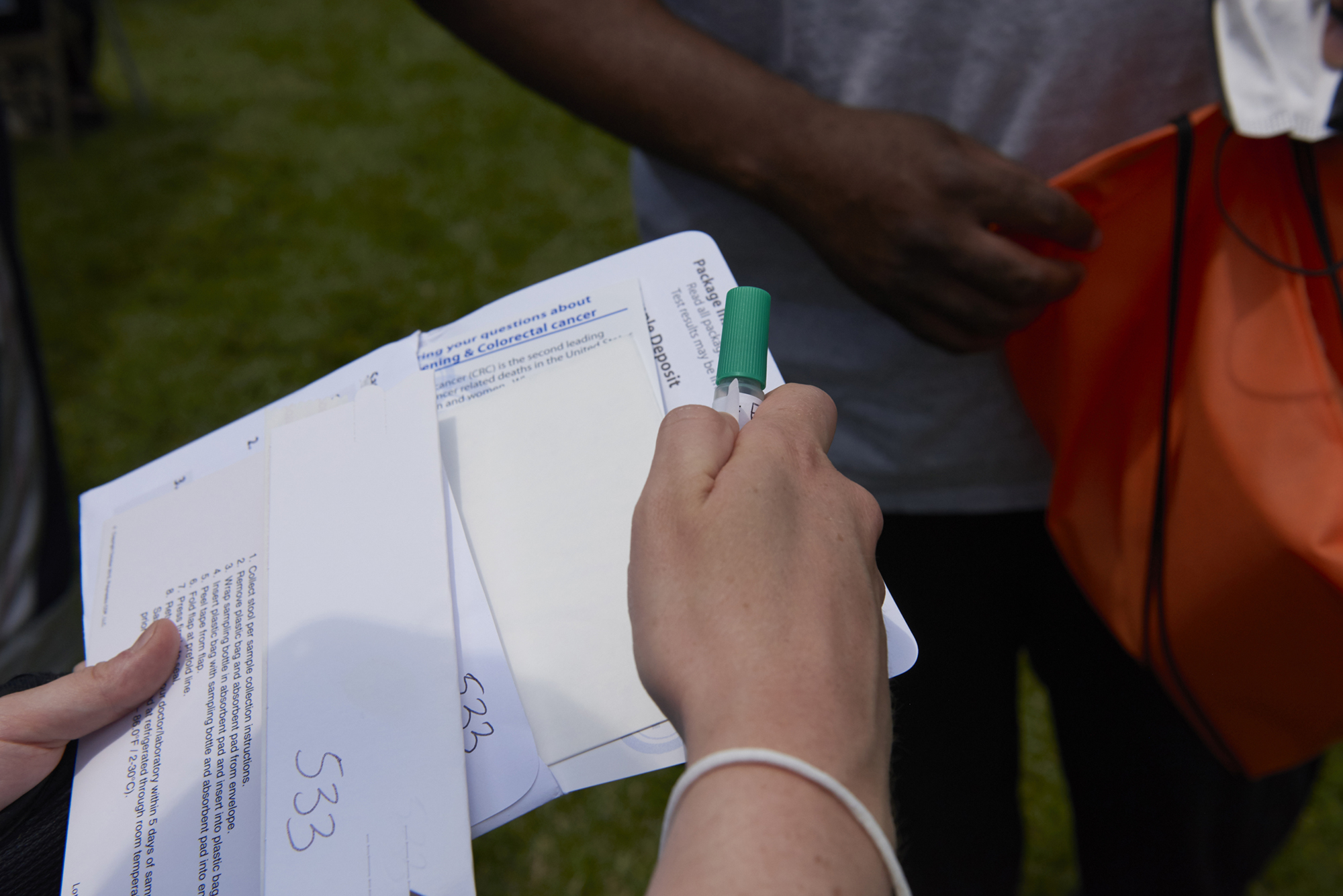Black Americans are more likely to get colorectal cancer — and even more likely to die from the disease—than any other racial or ethnic group in the United States. And while Black people experience health disparities across a host of diseases, colorectal cancer is largely preventable through screening. Furthermore, at-home stool testing kits are as valid a form of screening as a colonoscopy for many people.
That was the premise behind a unique community-based campaign that Penn Medicine joined this year with WURD, Philadelphia’s Black-owned and -operated talk radio station, and other organizations to provide free fecal immunochemical testing (FIT) kits and follow-up support to Philadelphia residents.
At-home testing kits use a stool sample collected by the patient to test for blood, which can be a sign of polyps or cancer in the colon or rectum. For people without additional risk factors, the at-home kits can be as effective as a colonoscopy in preventing cancer if done every year.
Participating in the WURD campaign was part of a multiyear campaign by Penn Medicine to raise colorectal cancer screening rates—and follow-up care—starting with getting at-home testing kits to more community members.
For the WURD campaign, Akinbowale Oyalowo, a gastroenterologist at Penn Presbyterian Medical Center and assistant professor of gastroenterology at the Perelman School of Medicine, approved eligible patients to receive the testing kits and followed up with those for whom a colonoscopy was recommended. He also appeared on a panel during the “Evening WURDS” show, one of several events the station organized to promote the “Go to Know” campaign. Listeners were directed to a website where they could register for a kit.
“It’s like online shopping, but instead of buying a gift for yourself or someone else, it’s a gift for your health,” Oyalowo says.
Read more at Penn Medicine News.








